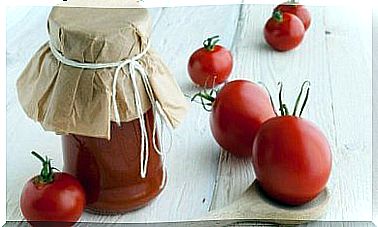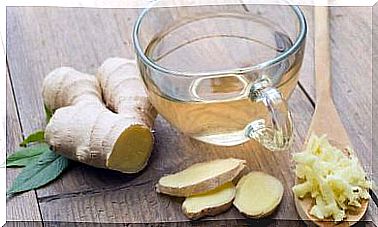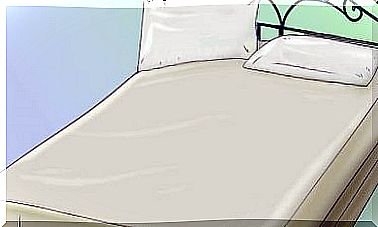The Cough That Is Associated With Colds

Cough associated with colds is one of the most common symptoms in winter. However, it is not only a symptom of disease, but also one of the body’s defense mechanisms. It helps to expel secretions and foreign particles that may be present in the airways.
Cough can have several causes, including the following:
- Infectious inflammatory processes affecting the respiratory tract
- Inhalation of irritating toxic substances
- Chronic respiratory diseases
- The secondary effects of drugs
Types of coughs associated with colds
Dry cough
Dry cough occurs as a result of irritating stimuli in the throat, larynx and upper respiratory tract. On many occasions, the cough itself increases the irritation and the need to cough, causing a vicious circle. This can cause the throat to become even more irritated.
In these cases, the treatment aims to reduce the intensity and frequency of the cough. In general, it involves local or peripheral cough suppressants. It can also involve natural substances that protect the mucous membrane from irritants.
The cough that is associated with colds: Cough
Mucosal cough or productive cough is due to stimulation of the nerves in the lower respiratory tract, accompanied by mucus. The consistency of mucus can be more or less difficult to expel when coughing.
It is not a good idea to suppress this type of cough as it is a defense mechanism for expelling the agents that causes it. However, patients can take treatments that make the fluid liquid, reduce the viscosity and facilitate expulsion.
Dry cough that develops into mucus cough
In the first phases of the cough, it is common for dry cough to occur. This is the result of an annoying and inflammatory process. However, as the process progresses, inflammation of the airways leads to an increase in mucus production.
This mucus becomes dense and viscous and takes the form of mucus cough as a defense mechanism to expel mucus. This is the natural development of the cough associated with colds and should not be a cause for concern.

How to treat coughs associated with colds through phytotherapy
In phytotherapy, there are plant species and other natural ingredients that help against different types of coughs. Some of these work alone, while others work in combination. They can have three effects on cough:
- Soothing and protective
- Oppressive
- Mucolytic
Among the most common components in phytotherapy for these treatments we find plant slime, saponins, flavonoids and essential oils.
Plant slime
Mucilages are polysaccharides that have a calming and protective effect on the mucous membranes against irritants. At the same time, they can provide water to the mucous membranes and hydrate them. This favors the flow of mucus, which facilitates expulsion.
Plant slime is used in preparations for dry cough as well as mucus cough. Among the plants that contain plant slime, we find aloe vera, hollyhock, poppy, felt king candle, plantain and apothecary cat cheese.
Saponins
Saponins act mainly as expectorants through two different mechanisms. On the one hand, through the reflexive action mediated by the vagus nerve that induces bronchial secretion. When it comes in contact with mucus, the saponins make it liquid and help with expulsion.
The most important plants used as expectorants due to the saponin content are ivy, polygala , primrose and licorice. Among them, ivy is the most widely used, although the mechanism of action is not completely known.
However, according to a report by the European Medicines Agency (EMA), recent studies shed light on the subject. They point out that saponins from ivy leaves favor the dilation of the bronchial tubes and stimulate the secretion of mucus.

Essential oils
The essential oils that people can use to treat coughs associated with colds have an antimicrobial effect in common. Thanks to its composition, essential oils provide a variety of therapeutic properties, including balm, suppressant and expectorant properties. When taken orally, these oils exert their local effect on the respiratory tract.
To treat respiratory conditions, you can use essential oils such as wild pine, ravensara and oregano. You can take them alone or combine them. Moreover, they are not only useful for treating diseases but also for preventing them.
Conclusion
Apart from pharmacological treatments for coughs associated with colds, phytotherapy may be a good option. Not only is it safe, it is also very effective. In addition, many of the herbal substances help to treat both dry cough and mucous cough.
There are also commercial products you can find at the pharmacy that consist of natural substances. Similarly, in case of persistent cough or mucus with a strange appearance, you should consult a doctor.









